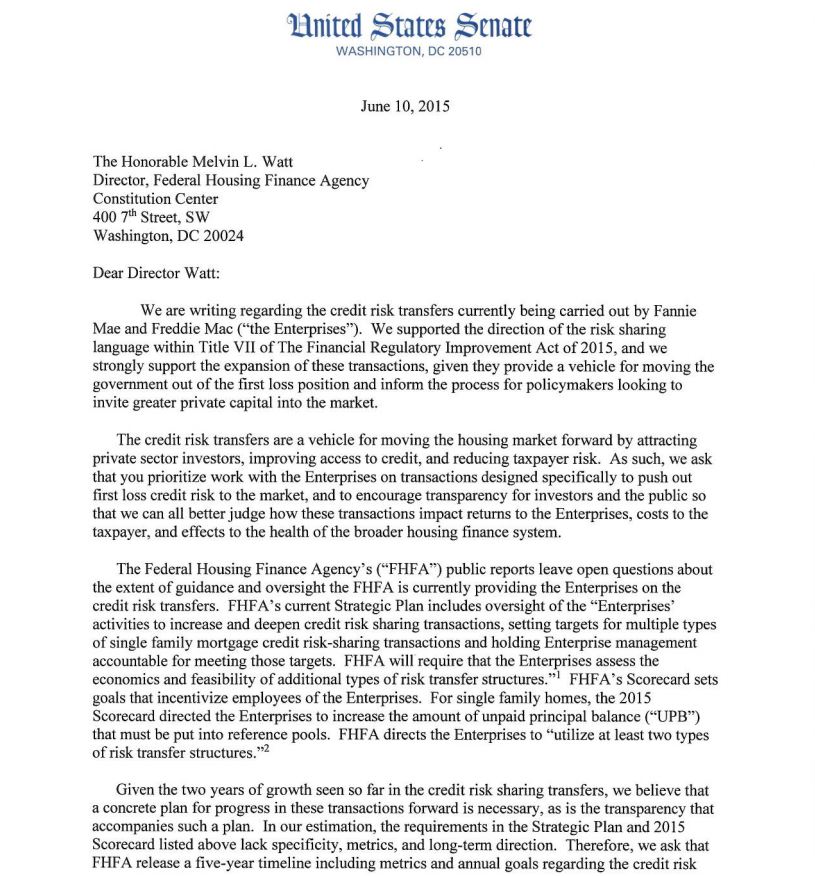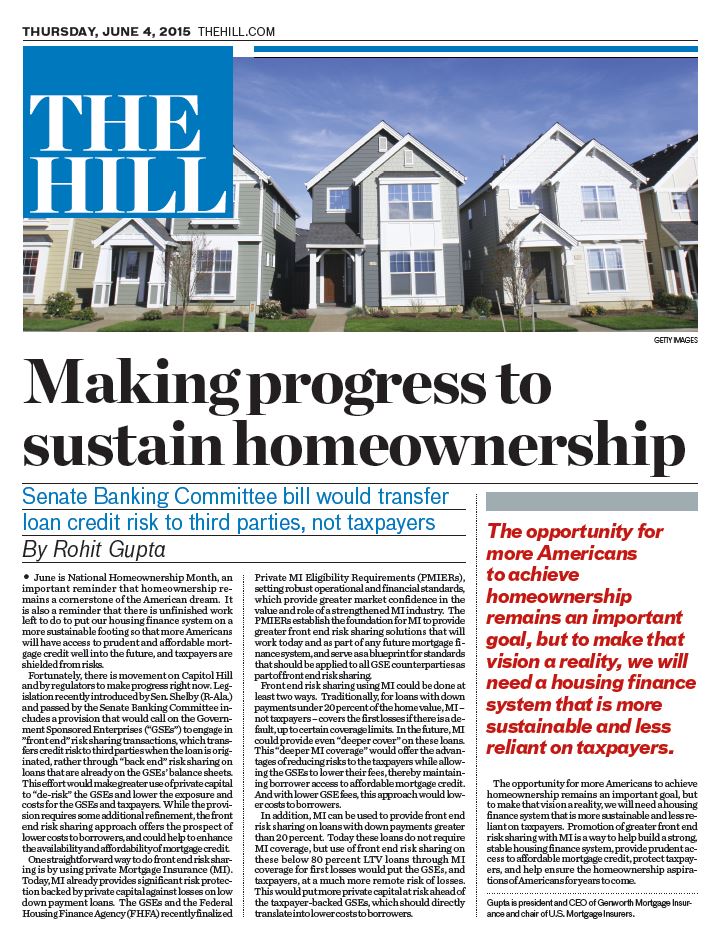
For Immediate Release
October 19, 2015
Media Contact
Robert Schwartz 202-207-3665 (rschwartz@prismpublicaffairs.com)
New Analysis Demonstrates How Greater Front End Risk Sharing with MI Reduces GSE and Taxpayer Exposure, Benefits Borrowers
U.S. Mortgage Insurers (USMI®) today released a new study demonstrating how housing finance risks can be significantly reduced for the housing finance Government Sponsored Enterprises (GSEs) and taxpayers, while maintaining access to homeownership with improved borrower economics, through greater use of private Mortgage Insurance (MI).
Among the key findings of “Analysis of Deep Coverage Mortgage Insurance,” prepared by Milliman, Inc., covering additional mortgage credit risk with MI:
- Almost doubles the amount of loss protection afforded to the GSEs;
- Would allow the GSEs to reduce their committed capital for this risk by approximately 75%, resulting in lower GSE guarantee fees (G-Fees); and
- Reduces borrower costs by an average of $8 per month or approximately $2,300 over the average life of the loan.
USMI commissioned Milliman, Inc., an independent consulting and actuarial firm, to conduct a third-party proof-of-concept of a proposal to deepen MI coverage down to 50% of the value of the home, using publicly available GSE information.
The Milliman report comes as policymakers are considering proposals to de-risk the GSEs through greater reliance on private capital, such as expanded up-front risk sharing using private MI. Up-front risk sharing with MI shifts the risks away from taxpayers right at the time individual loans are made and before the risk gets to the GSEs. MI is a first layer of credit protection for investors and a time tested method of risk sharing that has been used on low down payment loans for more than 50 years.
“As the GSEs enter the seventh year under conservatorship, taxpayers still face significant exposure to losses from another housing downturn,” said Rohit Gupta, President and CEO of Genworth Mortgage Insurance and Chair of USMI. “The housing finance system needs to be put on a more sustainable footing, with the private sector bearing more of the risks of another housing downturn so the taxpayers don’t have to, and Americans continue to have access to prudent and affordable mortgage credit.”
“Promotion of greater front end risk sharing with MI is a way to help build a stronger and more sustainable housing finance system, while ensuring the homeownership aspirations of Americans for years to come. In light of the Milliman analysis, USMI will be working with interested parties to encourage concrete steps to expand front end risk sharing with MI. The time is right to move forward to expand front end risk sharing with MI, and USMI members are ready to do more,” said Gupta.
“This analysis shows risk exposure to the GSEs can be reduced with deep coverage MI,” said Ken Bjurstrom, Principal at Milliman and author of the study. “It also documents the potential for savings to borrowers by substituting a portion of the current G-Fee requirements with premiums from deep MI coverage.”
MIs are reliable counterparties to bear housing finance risks, covering more than $50 billion in GSE claims since conservatorship, resulting in substantial savings to taxpayers. New master policies provide better clarity on claims, and new financial requirements (Private Mortgage Insurer Eligibility Requirements, or PMIERs) ensure that MIs have adequate liquidity and claims-paying capacity during periods of stress. MIs have also attracted billions in new capital from diverse sources.
The full Milliman report is available at https://www.usmi.org/wp-content/uploads/2015/10/Milliman-Report-Analysis-of-Deep-Coverage-MI-FINAL.pdf
###
About USMI
U.S. Mortgage Insurers (USMI) is dedicated to a housing finance system backed by private capital that enables access to housing finance for borrowers while protecting taxpayers. Mortgage insurance offers an effective way to make mortgage credit available to more people. USMI is ready to help build the future of homeownership. Learn more at www.usmi.org.
Download as PDF















